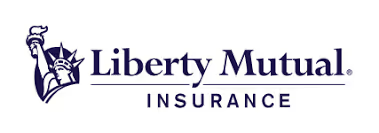






5-Star Valuation Services, Loved by Hundreds
Frequently Asked
Questions
No Frequently Asked Questions Found.
The essential mechanism involves policyholders paying regular premiums in exchange for financial protection against predefined potential losses. This risk management strategy allows people and organizations to navigate uncertain circumstances with greater confidence and stability.
Coverage operates across multiple dimensions, addressing diverse potential scenarios ranging from property damage to personal liability. The breadth and depth of protection depend entirely on the specific policy's terms, which outline precisely what circumstances and financial losses are eligible for compensation.
When evaluating insurance coverage, individuals must carefully assess their unique risk profile, considering factors like personal assets, potential liabilities, and financial vulnerabilities. Different types of insurance—such as property, health, auto, and liability policies—offer targeted protections designed to address specific potential challenges.
The value of comprehensive insurance coverage extends beyond immediate financial compensation. It provides psychological reassurance, enabling policyholders to pursue personal and professional activities with reduced anxiety about potential catastrophic losses. By strategically transferring risk, individuals can maintain financial resilience even when unexpected events occur.
Understanding policy details becomes paramount in maximizing coverage effectiveness. Policyholders should meticulously review limitations, exclusions, deductibles, and coverage limits to ensure their protection aligns precisely with their individual needs and potential risk exposures.
The process encompasses a comprehensive analysis that extends beyond simple price estimation. Professional appraisers conduct thorough examinations that consider multiple dimensions of property valuation, including current market conditions, specific property characteristics, and potential replacement costs. These detailed assessments help insurers and property owners align coverage precisely with actual asset value.
Different property types undergo unique evaluation approaches. Residential properties, commercial real estate, and valuable personal assets like artwork or collectibles each require nuanced assessment techniques. Appraisers employ sophisticated methodologies to capture the intricate details that influence an asset's true market worth.
The evaluation process typically involves several critical steps: comprehensive market research, detailed on-site property inspection, systematic documentation of property features, and careful calculation of replacement or reconstruction expenses. This multi-faceted approach ensures a robust and accurate valuation that reflects the property's genuine economic standing.
Accurate insurance coverage appraisals deliver significant advantages for property owners. They protect against potential financial vulnerabilities by preventing underinsurance, facilitate smoother claims processes, and provide a reliable mechanism for periodically adjusting coverage as market conditions evolve. By establishing a precise financial baseline, these appraisals enable property owners to make informed insurance decisions with confidence and clarity.
Ultimately, an insurance coverage appraisal represents more than a simple valuation—it is a strategic tool for financial risk management, offering property owners peace of mind and strategic insights into their asset's true economic potential.
Professionally conducted by certified appraisers with deep expertise in personal property valuation, these assessments involve a systematic approach to determining asset worth. Appraisers perform detailed on-site inspections, carefully cataloging items, examining physical conditions, and analyzing supporting documentation such as purchase records and maintenance histories.
The valuation process considers multiple nuanced factors that influence an asset's value:
- Age and physical condition of items
- Current market demand and industry trends
- Brand reputation and manufacturing quality
- Functional utility and operational significance
- Technological relevance and potential obsolescence
Critical business scenarios that leverage FF&E appraisals include strategic financial planning, merger and acquisition due diligence, insurance coverage determination, and comprehensive asset management. The evaluation process provides a granular understanding of asset value, enabling businesses to make informed decisions about their tangible property investments.
By meticulously analyzing each asset's characteristics and market positioning, FF&E appraisals deliver a transparent, objective assessment that supports critical financial and strategic planning efforts. These detailed valuations serve as an essential tool for businesses seeking to understand the true economic value of their operational assets.
Modern online appraisal methodologies typically involve clients submitting clear, well-lit images of furniture, fixtures, and equipment along with comprehensive supporting documentation. These digital submissions allow experienced appraisers to analyze items' condition, authenticity, and market value with remarkable precision.
Video conferencing platforms have further enhanced remote appraisal capabilities, enabling real-time interactions where appraisers can examine items dynamically and clients can provide immediate context or additional details. This interactive approach ensures a comprehensive assessment that closely mirrors traditional in-person evaluations.
Successful online FF&E appraisals require meticulous documentation. Clients should prepare detailed information including precise item descriptions, brand specifications, purchase dates, maintenance records, and high-resolution images capturing multiple angles and potential wear indicators. The more comprehensive the provided information, the more accurate the resulting valuation.
Different industries—from hospitality and corporate environments to retail and educational institutions—can benefit from these flexible digital appraisal approaches. The process maintains professional standards while offering unprecedented convenience and efficiency for asset valuation needs.
While appraisers share core valuation skills, they differentiate through industry-specific knowledge and targeted specializations. Retail, hospitality, healthcare, office, industrial, and niche market appraisers each bring distinct perspectives tailored to unique asset environments.
Retail FF&E appraisers focus on commercial display environments, analyzing market trends and depreciation rates for store fixtures and point-of-sale equipment. Hospitality specialists evaluate furnishings within hotels and restaurants, considering brand standards and operational requirements.
Healthcare appraisers navigate complex medical equipment landscapes, assessing technological systems and medical infrastructure with rigorous attention to regulatory compliance. Office FF&E professionals examine corporate assets ranging from workstation furniture to technological infrastructure.
Industrial appraisers delve into manufacturing sector assets, evaluating machinery, production tools, and equipment while calculating functional and economic obsolescence. Specialized appraisers further extend these capabilities into niche markets like cinema equipment, sporting goods, or themed entertainment assets.
Selecting an appropriate FF&E appraiser requires careful consideration of industry context, asset complexity, and specific valuation objectives. The right professional brings deep sector knowledge, precise analytical skills, and comprehensive understanding of asset value dynamics.
Professional appraisals deliver precise valuations that support critical organizational functions. Tax compliance becomes streamlined, as documented asset values enable accurate reporting and potential tax deductions. In insurance contexts, detailed appraisals ensure comprehensive coverage, protecting businesses against potential losses from unexpected events.
Financial transparency is another significant benefit. Accurate FF&E assessments provide stakeholders, investors, and potential buyers with a clear understanding of an organization's asset portfolio. This transparency becomes particularly crucial during mergers, acquisitions, or comprehensive financial reviews.
Strategic asset management represents another key advantage. By understanding the current market value of equipment and furnishings, organizations can make informed decisions about replacements, upgrades, and long-term capital investments. This approach transforms asset evaluation from a routine administrative task into a strategic planning tool.
Legal and estate planning processes also benefit substantially from professional FF&E appraisals. These documented valuations provide objective, defensible assessments that can simplify complex transitions, reduce potential disputes, and ensure equitable asset distribution.
Ultimately, a comprehensive FF&E appraisal is more than a financial exercise. It is a strategic instrument that supports operational efficiency, financial planning, risk management, and organizational growth, providing businesses with a nuanced understanding of their physical asset landscape.
Understanding FF&E: What is Furniture, Fixtures, and Equipment?
Furniture, Fixtures, and Equipment (FF&E) refers to the tangible assets that are essential for a business’s operations but are not permanently attached to a building. This category includes office furniture, machinery, tools, and other equipment that facilitates daily activities. Understanding FF&E is crucial not only for asset management but also for financial reporting and insurance purposes, as these assets represent a significant investment for businesses of all sizes.
In the context of insurance, FF&E appraisals play a vital role in determining the accurate value of these assets in case of unforeseen events such as theft, fire, or natural disasters. By obtaining a thorough appraisal, organizations can ensure they maintain adequate coverage to protect their investments. Such valuations take into account the age, condition, and market demand for the items, enabling businesses to tailor their insurance needs and mitigate potential financial losses effectively.
It's also essential to regularly review and update FF&E appraisals as the market and the business environment evolve. Changes in technology, shifts in consumer preferences, and economic conditions can significantly affect the value of furniture, fixtures, and equipment. By staying informed and conducting regular appraisals, businesses can optimize their asset management strategies and ensure their insurance policies remain aligned with the current value of their FF&E.
Importance of FF&E Appraisals in Insurance
FF&E appraisals play a crucial role in the insurance sector, particularly for businesses that rely on furniture, fixtures, and equipment to operate effectively. These appraisals provide a clear and accurate valuation of assets, ensuring that organizations can obtain appropriate coverage for potential losses. In the event of damage or theft, having a well-documented appraisal can facilitate the claims process and help businesses receive fair compensation based on the true value of their assets.
Moreover, FF&E appraisals serve as an important financial tool for companies, helping them understand the worth of their assets and make informed decisions regarding their insurance policies. Regular appraisals can also reflect depreciation and changes in market value, allowing businesses to adjust their coverage as needed. Ultimately, investing in thorough FF&E appraisals not only safeguards assets but also contributes to sound risk management practices, ensuring that companies remain financially resilient in a competitive landscape.
Key Components of an FF&E Appraisal
FF&E appraisals for insurance primarily focus on the valuation of furniture, fixtures, and equipment within a particular space. Understanding the key components of these appraisals is crucial for both business owners and insurers to ensure that adequate coverage is in place. Each item’s condition, age, brand, and market demand play significant roles in determining its overall value, making it important to have accurate and comprehensive evaluations conducted for insurance purposes.
A crucial aspect of an FF&E appraisal is establishing the replacement cost. This involves determining what it would cost to replace the items if they were damaged or lost. An effective appraisal will consider not only the current market value of the items but also factors such as depreciation, potential upgrades, and trends in the marketplace, ensuring that the insurance policy is reflective of real-world costs and considerations.
In addition to valuation, documentation is another vital component of the FF&E appraisal process. Properly cataloging the items, including photographs, receipts, and maintenance records, helps substantiate the appraiser's findings. This meticulous documentation is invaluable during the claims process, as it provides clear evidence of the items’ value and condition before any loss occurs, ultimately assisting in ensuring fair compensation in the event of an insurance claim.
Types of FF&E Being Appraised
Furniture, Fixtures, and Equipment (FF&E) appraisals typically encompass a wide variety of items that are essential for the operational functionality of a business. Common categories include office furniture such as desks, chairs, and cabinets, along with shelving and display units. Additionally, fixtures may refer to built-in elements like lighting and signage, while equipment can include anything from computers and printers to kitchen appliances in restaurants or hospitality settings. Understanding each component helps businesses accurately assess their total value and coverage requirements for insurance purposes.
Accurate FF&E appraisals can vary significantly based on the type of business and the unique needs it serves. For example, a hotel may require detailed appraisals for bedding, artwork, and restaurant furnishings, while a retail store may focus on display racks and point-of-sale equipment. Moreover, the condition and age of these items can greatly influence their appraised value, as more modern or well-maintained items typically hold higher worth. By categorizing FF&E appropriately, businesses can ensure they have the right insurance coverage in place, protecting them from potential losses due to unforeseen circumstances.
The Role of an Appraiser in FF&E Valuation
The role of an appraiser in FF&E (Furniture, Fixtures, and Equipment) valuation is crucial for accurately assessing the worth of these assets, particularly for insurance purposes. Appraisers bring a wealth of knowledge and experience to the table, understanding the nuances of various asset types and their condition. By conducting thorough inspections and utilizing recognized valuation methodologies, they can provide a well-reasoned estimate that reflects the current market value. This is essential for ensuring that businesses are adequately covered in the event of loss or damage.
Moreover, appraisers not only consider the intrinsic value of the FF&E but also its functional utility, market demand, and potential depreciation. They play an essential role in helping businesses navigate complex asset valuations, often collaborating closely with insurance providers to establish appropriate coverage levels. Their expertise can ultimately safeguard organizations against underinsurance or overinsurance, fostering better financial planning and asset management practices. With a reliable appraisal, companies can confidently pursue their insurance claims, knowing they have a solid foundation for their asset valuation.
Factors Influencing FF&E Value
The value of Furniture, Fixtures, and Equipment (FF&E) is influenced by a variety of factors that can significantly impact its appraisal for insurance purposes. One key consideration is the age and condition of the items. Newer and well-maintained assets typically have a higher value, while older items may depreciate due to wear and tear, affecting replacement cost assessments that insurance underwriters rely on for coverage decisions.
Market trends also play a crucial role in determining FF&E value. Fluctuations in demand for specific types of equipment or furnishings can lead to variations in market prices. Understanding current trends and shifts within particular industries can help appraisers establish a fair market value, ensuring that policyholders have adequate coverage while avoiding overinsurance, which may result in unnecessary premium costs.
Additionally, the original cost and useful life of the FF&E impact its overall valuation. Appraisers will often consider how much the asset originally cost, as well as its expected lifespan, which is typically defined by depreciation schedules. This information not only aids in establishing current value but also provides insights into how to best protect these assets through proper insurance coverage, ensuring that businesses are safeguarded against potential losses.
The Appraisal Process: What to Expect
The appraisal process for furniture, fixtures, and equipment (FF&E) insurance involves a systematic evaluation to establish the current market value of these assets. The process typically begins with an initial inspection, where a qualified appraiser examines the items in question, documenting their condition, age, and functionality. This hands-on assessment is crucial, as it allows the appraiser to identify any unique features or potential issues that may affect value.
After the inspection, the appraiser will gather relevant market data to support their valuation. This includes researching comparable sales, industry standards, and trends that impact the value of similar assets in the market. The appraiser may also consider factors such as depreciation, potential replacement costs, and any enhancements or alterations made to the items, ensuring a comprehensive approach to the valuation process.
Finally, the appraiser compiles their findings into a detailed report, which serves as a formal document for insurance purposes. This report will articulate the rationale behind the valuation, often including photographs and descriptions of the assessed items. It's essential for policyholders to review this document carefully, as it will influence coverage limits and claims in the event of loss or damage.
Common Uses of FF&E Appraisals in Insurance Claims
FF&E appraisals, or Furniture, Fixtures, and Equipment appraisals, play a crucial role in the insurance industry by providing an accurate valuation of a business's tangible assets. When businesses face losses due to disasters, theft, or accidents, having a precise appraisal in hand can expedite the claims process and ensure fair compensation. Insurance companies often require these appraisals as a basis for evaluating the extent of coverage and validating claims, making them essential for both policyholders and insurers.
In addition to establishing the value of physical assets for claims, FF&E appraisals can assist businesses in understanding their asset depreciation over time. Businesses may utilize these appraisals during renewal periods of their insurance policies to evaluate whether their coverage amounts still align with the current value of their assets. This proactive approach not only helps in optimizing insurance premiums but also protects businesses from underinsuring or overinsuring their FF&E, which can lead to financial pitfalls.
Another common use of FF&E appraisals in the insurance sector is during the sale or transfer of ownership of a business. Potential buyers and sellers often need clear appraisals to gauge the worth of the assets involved, as this can significantly impact negotiations and financing options. Accurate valuations bolster transparency in transactions and help in establishing the business’s market value, facilitating smoother transitions while safeguarding the interests of all parties involved.
How to Choose the Right Appraiser for FF&E
When selecting an appraiser for FF&E (Furniture, Fixtures, and Equipment) valuations, it's crucial to consider their experience and specific expertise within the industry. Look for professionals who have a proven track record in appraising FF&E items similar to those you need evaluated. Their familiarity with various asset types can significantly impact the accuracy and relevance of the appraisal report, ensuring it meets the demands of insurance purposes or any potential sales.
Additionally, assess the appraiser's qualifications and credentials, such as certifications from recognized appraisal organizations and relevant licenses. It is also beneficial to inquire about their methodology and approach to FF&E appraisals, as this will provide insight into how they determine value. Engaging with an appraiser who prioritizes transparency and communication will not only facilitate a smoother process but also instill confidence in the reliability of the appraisal results.
Legal and Regulatory Considerations in FF&E Appraisals
When conducting FF&E appraisals for insurance purposes, it is essential to consider the legal and regulatory frameworks that govern the appraisal process. Various state and federal regulations may apply, influencing how appraisals must be conducted and reported. Compliance with standards from recognized professional organizations, such as the Uniform Standards of Professional Appraisal Practice (USPAP), ensures that appraisers adhere to ethical guidelines and provide a credible basis for valuation. This not only protects the interests of property owners but also helps insurance providers accurately assess risk and premium calculations.
Additionally, understanding the specific legal requirements in your jurisdiction is crucial, as these can affect how FF&E is valued and reported. For instance, certain sectors, such as hospitality or healthcare, may have additional regulations regarding asset valuation due to industry standards. Furthermore, insurance policies often dictate specific criteria for valuation, such as determining the replacement cost versus actual cash value, which can impact coverage decisions. Therefore, engaging with an experienced appraiser who is well-versed in the legal landscape surrounding FF&E appraisals can help ensure compliance and validity in the valuation process.
Tips for Preparing for an FF&E Appraisal
Preparing for an FF&E appraisal involves several crucial steps that can lead to a more efficient and accurate assessment. First, it is important to compile a detailed inventory of all furnishings, fixtures, and equipment present in the property. This list should include the condition, age, and any unique specifications of each item, providing the appraiser with essential context to evaluate the overall value more effectively. Documentation such as purchase receipts, warranties, and photographs of the items can further support the appraisal process.
Additionally, understanding the specific insurance requirements for your assets is key to ensuring appropriate coverage. This may involve familiarizing yourself with the insurer's standards for appraisals and any necessary reporting that must accompany the valuation. Engaging in open communication with the appraiser about your expectations and objectives will help align their findings with your needs, ultimately leading to a smoother appraisal experience.
Frequently Asked Questions About FF&E Appraisals for Insurance
FF&E appraisals for insurance primarily focus on furniture, fixtures, and equipment that are integral to the operational efficiency and aesthetic appeal of a business. These appraisals help ascertain the fair market value of the assets, which is crucial for ensuring that businesses are adequately covered in the event of loss or damage. Understanding the specific requirements and nuances of FF&E valuations can help businesses determine the appropriate levels of coverage, avoiding potential underinsurance or overinsurance pitfalls that can lead to substantial financial implications down the road.
Common questions surrounding FF&E appraisals often include inquiries about the methods used to evaluate these assets and the frequency with which appraisals should occur. Typically, appraisers use a combination of the cost approach, sales comparison approach, and income capitalization approach to derive accurate valuations. Additionally, businesses are advised to consider a reevaluation every few years or when there are significant changes in their asset inventory to reflect current market conditions and replacement costs effectively.
View all Locations
APPRAISEITNOW APPRAISERS ARE BEST-IN-CLASS & CREDENTIALED BY LEADING APPRAISAL ORGANIZATIONS LIKE THE ISA, ASA, & MORE.









.svg)








